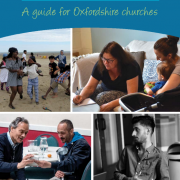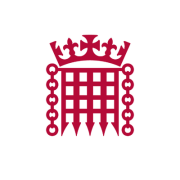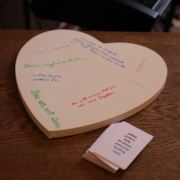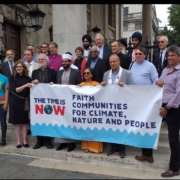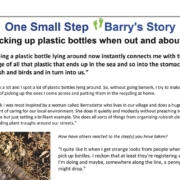Supporting Refugees – A guide for Oxfordshire churches
in Actions, Refugees - Practical Action, Refugees and Asylum SeekersSpeaking and Writing on the ‘Illegal Migration Bill’
in Actions, Refugees - Practical Action, Refugees and Asylum SeekersUpdated as of the afternoon of 10 July 2023
The ‘Illegal Migration Bill’, which UNHCR has said would, if passed as introduced, “amount to an asylum ban” continues its journey through Parliament. It will have its Third Reading in the House of Lords on 10 July, and is expected to be considered in the House of Commons on Tuesday, the 11th of July.
Immediate Need: Contact your MP expressing opposition to the Bill and/or asking them to accept all the House of Lords Amendments
While the ‘Illegal Migration Bill’ remains deeply problematic, the House of Lords made a number of very helpful amendments. The revised Bill can be found here and our list of the amendments is here.
Anyone with an interest in protecting asylum and the rights of asylum seekers should email or ring their MP in advance of their consideration of the amended Bill. If you don’t already have your MP’s contact details, you can find out how to contact them via the They Work for You website.
If the House of Commons rejects the amendments and sends the Bill back to the House of Lords, you will wish to contact your MP when it subsequently returns to the House of Commons again, too! Email us to be included on the list for updates.
We would advocate asking your MP to accept ALL of the House of Lords amendments.
It has now been suggested that the government is likely to give concessions on a few key issues, including detention of children and pregnant women and the retrospective nature of the Bill. These are all important issues and we would hope, at the very least, to see progress in these areas.
But it is important to remember that all refugees are vulnerable – and that the Bill as a whole has been described, by UNHCR, as “an asylum ban— extinguishing the right to see protection in the United Kingdom for those who arrive irregularly, no matter how compelling their claim may be.”
It is therefore important to press not only on a few issues above but on the whole Bill. We have advice on how to do this below.
Guides to Contacting Your MP and Help with Messaging
Time is of the essence. If you have time, please write or call your MP today.
Use your own words as much as possible: MPs will respond to what is genuinely from you more than they will to a form message.
Please note that you don’t need to write or leave a complex message: just saying something along the lines of “I want to support vulnerable people who are in need of protection and to maintain the UK’s international standing – and I would, therefore, ask you to support all the House of Lords amendments to the ‘Illegal Migration Bill'” gets the point across.
If you have a Conservative MP, you might want to try messaging such as:
I am concerned that the Government’s ‘Illegal Migration Bill’ is neither effective nor compassionate.
- It is held up as addressing questions around migration, but refugees make up only a tiny percentage of net migration numbers.
- Numerous bodies – from the UNHCR to the Law Society to the Children’s Commissioner – have said that the Bill’s provisions are likely to be incompatible with the UK’s international treaty obligations, leading to potential damage to our international reputation and to our ability to work with partners to find solutions to complex problems.
- The Bill has the potential to result in the detention of large numbers of people indefinitely at the expense of our domestic spending.
- The Bill changes limits on detention for children and pregnant women which were introduced by the Conservatives themselves, despite the known harm such detention can cause; in addition, the Children’s Commissioner has raised numerous issues about the Bill’s impact on children more generally
- By denying support to victims of trafficking, the Bill undermines the Conservatives’ flagship work on trafficking and hands traffickers additional threats to use against their victims.
I remain concerned about the entirety of the Bill and its approach. That said, the Lords Amendments would help to alleviate or remove some of the key issues with this Bill, and I urge you to vote to accept them all.
To customise your letter further, take a look at the material below.
Further Resources
- A brief guide to speaking with your MP from the Together with Refugees coalition (email us for a more detailed version)
- CCOW’s compilation of key advocacy points, each supported with statements by Christian leaders
- CCOW’s compilation of advocacy points made by Conservative peers (helpful if you are speaking with a Conservative MP, or making the point that this isn’t a party political issue) – email us for a copy
- The House of Lords briefing on the Bill
- A useful messaging guide from Freedon from Torture
- Refugee Action’s “A vision for a compassionate, accessible and workable asylum system”
- Charlbury Refugee Action Group, the Caritas Social Action Network, and the Refugee Council’s model letters of opposition to the Bill.
More Detail: What the Lords amendments do
The amendments are asking MPs to do four things:
- Ensure that policy and practice are consistent with domestic law and international treaty obligation (and are not made retrospective)
- ensuring that the provisions of the bill are interpreted consistently with the UK’s obligations under relevant international human rights treaties
- ensure the lawfulness of immigration detention remains subject to principles established in the common law.
- protecting the right of courts to temporarily delay the removal of a individual to a third county.
- ensuring that the ‘duty to deport’ doesn’t apply to people who arrived before the Bill comes into force
- Protect people who have already suffered exploitation and tackle the issues of trafficking
- enabling victims of trafficking and unlawful exploitation to receive appropriate support
- strengthening the ability to prosecute traffickers by recognising that people who have been trafficked or unlawfully exploited are more likely to be able to assist investigations or criminal proceedings if they are still in the UK
- putting a legal responsibility on the National Crime Agency to tackle organised immigration crime across the English Channel
- requiring the government to implement a ten-year strategy, in collaboration with international partners, to tackle human trafficking and refugee crises
- requiring the government to set out its plans to allow people from abroad to enter safely and lawfully into the UK and thereby reducing the need to take risky journeys or rely on traffickers
- Protect the most vulnerable people and groups from harm
- protecting children from detention, from incorrect age assessments, from being taken out of care and put into unsuitable accommodation and enabling them to have their human rights and asylum claims considered, if they are unaccompanied and exempt from the ‘duty to remove’ conditions
- protecting pregnant womenand their unborn children from detention
- protecting LGBT+ people from being removed to countries where they might face persecution
- protecting people at risk of ‘serious harm’ if removed to a country from having to show that the serious harm would be ‘irreversible’ in order to challenge their removal
- Protect people from being detained indefinitely at taxpayer expense
- requiring the government to consider a protection or a human rights claim if the applicant has not been removed from the UK within six months of the claim being deemed inadmissible. At present, the fear (see the Refugee Council study here) is that tens of thousands of people will have their claims deemed inadmissible, regardless of their merit. In theory, they will be detained until removed, but since the only removal agreements that exist are currently with Albania and Rwanda – and the latter has been deemed unlawful – it is unlikely that the people will be able to be removed. This means that the Government will need to detain thousands of people for indefinite periods of time, at taxpayer expense (and it is worth noting that they will not be able to use Overseas Development Assistance for this purpose, as they do for refugees and asylum seekers). The risk to the mental and physical health of those detained, and the expense to the taxpayer are considerable. This amendment would enable people who had not been removed within six months to make a human rights/asylum claim.
________________________________________________________________________________________________
In our March newsletter we shared links to background information on the Bill and suggestions for prayer and action. Further helpful analysis can be found in the joint Second Reading Briefing by leading refugee charities including Safe Passage and Freedom from Torture, and more detailed legislative scrutiny as national experts answer questions from the parliamentary Joint Committee on Human Rights (video recording).
Many religious and secular groups have written in opposition to the Bill over the past months, including 1450 church leaders saying it is “incompatible with our Christian conviction that all human beings are made in the image of God” and will “foster discrimination and distrust” and cause “immeasurable harm”.
In addition, during the House of Lords debate, many Christian leaders, both ordained and lay, have made interventions.
How can I make a difference?
Once the Bill has gone through the House of Lords, it will come back to the House of Commons. In preparation for this, we would encourage everyone who can to get in touch with their MP: given the potential impacts of the Bill, it really is worth making your voice heard.
MPs listen most fully to people who request a meeting with them. They also respond when people write them a letter which is clearly their own and not a form letter.
On this page, we offer updated resources to help you speak or write with confidence:
- A brief guide to speaking with your MP from the Together with Refugees coalition (email us for a more detailed version)
- CCOW’s compilation of key advocacy points, each supported with statements by Christian leaders
- CCOW’s compilation of advocacy points made by Conservative peers (helpful if you are speaking with a Conservative MP, or making the point that this isn’t a party political issue) – email us for a copy
- A useful messaging guide from Freedon from Torture
- Refugee Action’s “A vision for a compassionate, accessible and workable asylum system”
- Charlbury Refugee Action Group and the Refugee Council’s model letters.
We can also offer additional support and training, including a checklist of things to do in preparation for a meeting with your MP. Email us for details.
If you don’t have time to meet or write to your MP, please do sign a petition, such as the Refugee Council’s campaign for a fair and humane asylum system.
Nationality and Borders Bill
in Actions, Refugees - Practical Action, Refugees and Asylum Seekers, Refugees Practical Action
Please click the link below for CCOW’s briefing on the Nationality and Borders Bill, including suggestions for prayer and action.
Show your heart #TogetherWithRefugees
in Actions, Refugees - Practical Action, Refugees and Asylum Seekers, Refugees Practical Action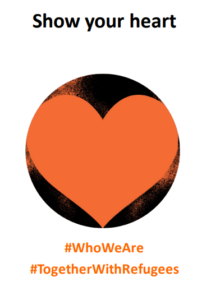
CCOW is pleased to be part of the Together With Refugees coalition. Please click the link below for the “Show your heart” leaflet which was distributed at our event in Oxford on 20th October 2021. It gives suggestions for prayer and action for refugees, people who are welcoming them in the UK, and Government policy that is more effective, fair and humane.
New Plan for Immigration – pray & act
in Actions, Refugees - Practical Action, Refugees and Asylum Seekers, Refugees Practical Action
Please click the link below for the PowerPoint slides used at our Time of Prayer for Refugees and Those Walking Alongside on 26th April 2021. They give prayer pointers and suggestions for action, including responding to the government’s consultation by 5th May 2021.
April 2021 Time of Prayer for Refugees – New Plan for Immigration
Supporting Refugees Locally at a Time of Coronavirus
in Actions, Refugees - Practical Action, Refugees and Asylum Seekers, Refugees Practical ActionRefugees, here in the UK and around the world, need our support more than ever during the coronavirus pandemic.
People who have fled their homes are often living in crowded camps or rough settlements, unable to self-isolate, practise social distancing or wash hands regularly. The majority are displaced within their own countries or in neigbouring countries, many of which have healthcare systems unable to cope with COVID-19, through the effects of war or longterm economic weakness. With borders closed many are trapped, such as on the Greek islands, unable to continue their journey.
Those who are now in the UK often find themselves isolated, as their social networks are still limited and refugee charities have been forced to scale back their services. Access to appropriate housing, healthcare and vital supplies and services is now a problem for many, particularly for asylum seekers and others with No Recourse to Public Funds (NRPF). Many people, including the Mayor of London and migrants’ rights charities are calling for a suspension of NRPF, and the Home Office is rethinking this policy but the Home Secretary’s current position is that since people with NRPF are eligible for some of the government’s Covid-19 support measures and some individuals can apply to have their NRPF restriction lifted,this is sufficient. Refugee Charities are also calling on the government to increase asylum support payments in line with the increase in Universal Credit which was made in response to the pandemic. With regards to healthcare, whilst treatment for COVID-19 has been made free to everyone, treatment for underlying health conditions would still need to be paid for by some people, deterring them from seeking medical care. So Doctors of the World, the BMA and refugee charities are calling on the government to suspend NHS charging regulations.
What can we do?
Pray
-
for measures to help protect refugees from COVID-19 to be implemented
-
for those in the asylum process whose immigration interviews have been suspended at this time and those for whom the process of family reunion has stalled
-
for those in need of a safe place to live – give thanks that those in UK asylum accommodation have been permitted to stay there for the next 3 months, that all those on the streets are to be housed by local authorities and that many have been released from immigration detention centres. Pray for all who are still in shared accommodation.
-
for those with No Recourse to Public Funds and those prevented from accessing healthcare due to NHS Charging Regulations
-
for refugees who are qualified health workers but have not yet completed the process of registration in the UK – give thanks that they can now work in the NHS as Medical Support Workers, but pray they may soon get registration so they can use their full skills at this time of urgent medical need.
…and act
-
support refugee charities and community groups adapting to support people remotely, but facing financial difficulties due to a loss of fundraising income – see details of some local groups’ work and how you can help in “In response to Covid-19”
-
reach out to refugees living near you – ideas and resources from Welcome Churches (in several languages) to show you care about them
-
sign the letter calling for suspension of NHS charging regulations
-
sign Refugee Action’s petition to increase asylum support payments by £20.
Prayer Email for 4/08/19: Climate Emergency – Action Stations
in Care for Creation, Care for Creation Action, Care for Creation WPE, Weekly Prayer EmailReadings for this week :
- Hosea 11:1-11 and Psalm 107:1-9,43
- Ecclesiastes 1:2, 12-14; 2:18-23 and Psalm 49:1-12
- Colossians 3:1-11
- Luke 12:13-21
Verses for meditation:
” So if you have been raised with Christ, seek the things that are above, where Christ is, seated at the right hand of God. Set your minds on things that are above, not on things that are on earth, for you have died, and your life is hidden with Christ in God. When Christ who is your life is revealed, then you also will be revealed with him in glory. Put to death, therefore, whatever in you is earthly…”
(Colossians 3:1-5a)
Reflection on the verses:
“The values from above should shape our earth. Paul does not call us to escape this earth for heaven but to transform the earth with the gospel of heaven. In so doing, we have the promise: ‘When Christ who is your life is revealed, then you will also be revealed with him in glory.'”
Robert Smith, Commentary on Colossians 3:1-11, A Plain Account
Coming Up This Fortnight
For prayer before, during or after the events…
9 August – International Day of the World’s Indigenous Peoples
12 August – International Youth Day
2019 Theme: Transforming Education. Info from the UN. Could youth in your church lead prayers for young people worldwide?
19 August – World Humanitarian Day
2019 theme: Women Humanitarians. Pray for humanitarian workers/efforts worldwide. Info from UN
Items for Prayer
Emergency – Action Stations
As we’ve been writing the Pray and Fast for the Climate prayer points this week, I (Maranda) have had company. A group of bluetits and a mistle thrush have taken up residence outside my office window. They flit from the rosebush to the windowsill, tap the sill probingly (it’s metal – not much satisfaction there) and then flit back. The rose’s blossoms nod as they land in its branches – and nod again as they take off for the nearby elder, whose darkening berries are an abundant source of food.
It’s all very idyllic – the kind of thing that recalls nineteenth century poetry: “the lark’s on the wing; the snail’s on the thorn: God’s in His heaven – all’s right with the world.” Juxtaposing that with the climate impacts I’ve been writing about has been somewhat jarring. It has highlighted one of the problems many of us in the UK face: surrounded by a natural world which, on the surface, doesn’t look that different from the one we and our parents and grandparents have grown up loving, how can we maintain our focus on confronting the very real planetary crisis that means that all is decidedly not right with the world?
For me, the hardest prayer item to write was the one about the Arctic. What’s happening there is deeply disconcerting. There is the incongruity of intense heating in the coldest regions. Record-breaking heat in contexts where you expect heat is one thing. But three straight months of above average temperatures and highs above 30 in Alaska? Then there are the reports of mass animal deaths in recent years – tufted puffins starving, most likely because of the warming seas, and thousands of Cassin’s Auklets being washed ashore. And finally there is something that is both present and imminent – the awareness that the Arctic impacts that we are seeing are themselves drivers of accelerated heating, that we are looking at the type of feedback loops that scientists have long warned pose a primary threat to our ability to avoid runaway global heating. Ice melt means that less heat gets reflected and so leads to further ice melt; wildfires spread soot, increasing heat absorption that helps to create the conditions for further wildfires; the fires’ heat warms permafrost, releasing long-sequestered carbon ….
The crisis is real. And if we’re honest, it’s present even in our part of our common home. The birds at my window are lovely – but where are the flocks of swifts that used to wheel around the village? The roses are beautiful, but what about the more shallow-rooted plants, that have withered in the heat? If I’m working late at night, can I fail to notice that there are fewer moths bumping against the windowpane, trying to reach the light? The quiet apocalypse is a reality here, too.
This is why the language of emergency – climate emergency and, more generally, planetary emergency – feels so important. Human beings are, by nature, adaptively resilient. When things change, we change, too. If the change is gradual enough, it’s easy to embed the ‘new normal’ in our established patterns of language and action, shifting definitions so that we can disguise from ourselves the significance of what’s happening. A ‘hot summer’s day’ this year is 38, but because we talk about summer heat and ‘ice-cream weather’ as we once would have to describe a day of 30 degrees, it feels less threatening. The language of emergency cuts through this, acknowledging that what we are seeing is not a temporary extreme that we can fit within our extant paradigms, but part of an abnormal shift that can’t be ignored.
But there’s a challenge with ’emergency’ language, too. For some people, it feels disempowering, as if we’re saying that the situation is beyond our control, too difficult to resolve and hence pointless to fight. We may feel that it invites us to become like that stock figure of disaster films and real-life situations – the person who disconsolately moans ‘We’re doomed’ as a crisis becomes apparent.
There are, however, other models. One that springs to mind is the airline pilot ‘Sully’ Sullenberge and his team. Sullenberger famously landed a crippled, engine-less jet in the Hudson River without loss of life. In what was a seemingly hopeless emergency, with only four minutes from engine failure to impact, he drew on decades of experience, his own courage and skill, the absolute knowledge of what the technology he commanded *could* do, and a well-trained team. He, his co-pilot, the air traffic controllers who alerted those in their path, the flight attendants who then helped evacuate the passengers, the ferry and boat crews who rescued them, and the passengers themselves (barring one who panicked and opened a rear door) saw what needed to be done, and did it.
For us, too, the declaration of an emergency can be the impetus not for panic but for a focused, realistic assessment of where we are, the tools we have available to us, the changes that need to happen, and how we can both implement them on a small scale and work with others to see them implemented on a large scale.
Neither the climate crisis nor the broader planetary environmental crisis is going to be simple to resolve. But one of the main merits of the Paris Agreement is that it has given us a clear long-term goal for climate action. To fulfill this goal, it’s now generally recognised that the world has to get to net zero emissions globally by mid-century. In this, developed countries need to lead the way as ‘early adopters’. This goal provides a framework for our efforts: it’s not just about doing this or that action, advocating for this or that policy. It’s about assessing now what it would take for us – individually, as Christian communities, as part of our wider societies – to begin to approach the net zero target in a scientifically and morally credible time frame.
How we do this isn’t simply a technical matter. Any attempt to answer the question ‘How then shall we live?’ brings us back to the first principles of our faith – the nature of God, what it means to be human, what the relationships between God, humanity and the rest of creation – now so often manifestly broken – are meant to look like. As Christians, our faith gives us some clear principles that can be a gift to the general response – a worldview that sees the intrinsic value of all creation, for example; a calling to love of neighbour which incorporates the need for climate justice; and a trust in the One who created, redeems and sustains all that is – the wellspring of our hope. Perhaps our first challenge is truly to ‘own’ the things we say we believe – so that they become the deeply embedded foundations on which we seek, by God’s grace and using all the technical tools at our disposal, to build a concrete reality.
In four weeks’ time, we start the Season of Creation, which runs from 1 September to 4 October and this year has the theme ‘Web of Life – Biodiversity as God’s blessing’. It’s a time for people and churches who are already deeply committed to caring for creation as part of discipleship to take stock and to renew that commitment … and for those just exploring this aspect of discipleship to take the first steps.
We hope and pray that it will be a time to celebrate the glorious diversity of what Richard Bauckham calls ‘the community of creation’. We hope and pray that it will be a time to pray together in repentance, praise, thanksgiving and intercession for the creation. But we also hope and pray that this won’t just be ‘the time of the year when we think about creation’ but a time to start or review a long-term plan for living as we have to live if we are to be responsible members of the creation before God. What would it look like, for example, if our churches committed, this Season of Creation, to developing over the coming year a credible net zero plan and/or a credible plan to celebrate and protect biodiversity… and then began a year-long process of exploring the underlying principles and the technical tools that could shape their response?
This week, in our resources section, we highlight the official Season of Creation resources. But with the aim of helping churches to think about long term plans, as well as celebrating the season, each subsequent week’s resources section will have a particular focus: understanding and explaining the crises facing the planet, reflecting on our Christian calling, practical tools for action, and tools that help us connect with each other and our communities. At every point, we’d love to hear from you about things you’ve found helpful – so please do write in with suggestions! Please also let us know if you’d like to be part of a process of thinking through how we, ecumenically, can strengthen each other’s response. And please pray that this Season will further a restoration of relationships between God, humanity and all creation.
DRC Update: Ebola and Wider Concerns
Please continue to pray for the people of the Democratic Republic of Congo, especially in the eastern provinces. In the province of Ituri, a renewed outbreak of violence has led to many deaths and the displacement of hundreds of thousands of people, many of whom have fled to the city of Bunia. Pray for all affected, especially for people who have lost loved ones, homes and livelihoods. Pray too for those who are seeking to offer assistance to people who have been displaced, and especially for Caritas Bunia, which is coordinating aid to people in camps.
Ituri, together with the province of Nord Kivu, is also affected by the Ebola outbreak, which, one year after it began, has now claitled over 1,838 lives. On 17 July, the World Health Organization declared that the Ebola outbreak is a Public Health Emergency of International Concern. The immediate causes for the declaration included the first Ebola case in the provincial capital of Goma. Goma is a major transport and trading hub, and there has long been concern that if cases began to appear in the city, the virus could spread more widely from there to other parts of the DRC and potentially to other countries.
Part of the hesitation in declaring a Public Health Emergency of International Concern has been a fear, especially within the Congolese government, that such a declaration could result in countries closing their borders with the eastern DRC – something which would further destabilise the already fragile economy there. The declaration explicitly asked neighbouring countries not to do this; thus far, most seem to have complied, and while Rwanda temporarily closed its border with Goma, it appears to have reopened it.
The declaration has had a positive effect in mobilising resources for the health response, and numerous countries and agencies, including the World Bank, have increased their involement.
Pray that countries will continue to keep their borders open and that the declaration will continue to have a positive impact on the resources available for prevention and treatment.
In another development at the end of July, the oversight of the Ebola response was switched from the Minister of Health to a team of experts, led by Professor Jean-Jacques Muyembe Tamfum, reporting directly to the President. The shift may be related to questions of which vaccines and vaccination strategies to use, concerning which there has been a division of opinion (perspectives: RFI, Muyembe press conference, Minister of Health’s letter, Peter Piot and Harvard Business Review). We pray for the new team as they take on their new responsibilities, asking God to give them wisdom and strength.
Finally, the Congo Church Association recently sent out its newsletter. We rightly hear much about the difficulties that people in the DRC face – we must be aware and pray in response. But in the newsletter, we also hear about the loving and courageous work that Congolese Anglican churches are doing, by God’s grace, to show God’s love in word and deed. We need to hear about this, too. Do take a look at this and at the Caritas Bunia website – and pray for Christians in the DRC, thanking God for them and asking God to guide and bless them and their ministries.
Some more prayers for the DRC can be found here and from the Congo Church Association. CAFOD has a prayer specifically for those affected by Ebola.
Short Notes
Yemen
845,017 people. It’s a little more than the total population of Berkshire – and it’s the number of people who are thought to have contracted cholera in Yemen between January 2018 and 7 July 2019. More than 1,230 have died. An estimated 3.3 million Yemenis have been displaced; 10 million are in need of food aid.
Please continue to pray for the people of Yemen, especially for the many civilians for whom the war and humanitarian crisis have meant loss of family, friends, health, homes and livelihoods. Pray that an apparent deal to increase the flow of aid will last and will be effective. Give thanks for all people of good will who are working for peace and to provide assistance to those in need. Pray for their safety and effectiveness.
Pray, too for all parties in the conflict – that they may seek a just peace. As the United Arab Emirates draw down their troops, pray that the result is an opening for a negotiated peace.
Sudan
Sudan’s army and its main opposition coalition have signed a constitutional declaration that sets out a plan for a transitional government. Pray that this development leads to justice and stability for all inhabitants of Sudan. Pray for those who will lead the new transitional government, as they seek to negotiate the country’s economic and political challenges.
Hong Kong
Please continue to hold the people and government of Hong Kong in your prayers. As protests and strikes continue, tensions also continue to mount, and there is concern about China’s response. Please pray for wisdom for all involved. Pray, too, that the situation may end in a just resolution, by which the human rights, freedoms and safety of all Hong Kong’s inhabitants – and the preservation of their distinctive place – can be guaranteed.
For Prayerful Action
WIn addition to starting to plan for Season of Creation, could you:
- Donate to humanitarian relief in Yemen? CAFOD, MSF, Oxfam, Tearfund , Unicef and the World Food Programme are among those with dedicated appeals.
- Donate to humanitarian relief in the Democratic Republic of Congo? CAFOD, Christian Aid, Oxfam, and Unicef are among those with dedicated appeals.
Resources to help you pray and act
Season of Ceation
Put together by a global team, this year’s Season of Creation resources include a full celebration guide with information about the theme, a ‘Season of Creation’ prayer and further worship resources, and suggestions for events. The website’s resources section also includes promotional materials, materials for young people and clergy, and a space for sharing community-created resources. Take a look.
We also still have some of Elizabeth’s beautiful Time for Creation postcards, which you can use as invitations to special events. They’re free; all we ask is a donation to cover postage and packing. Email if you’d like some.
This email was sent to you by Christian Concern for One World.(CCOW), The Rectory, Church End, Blewbury OX11 9QH. If you’d like to receive it in your inbox, please email us at info@ccow.org.uk
If you find our resources helpful, please consider donating to CCOW online or by cheque or standing order.
One Small Step – Barry’s Story
in Care for Creation, Care for Creation Action, One Small Step, Print ResourcesAs Christians, we know we’re called to live in ways that show love of God and neighbour. But how do we make changes to live this call out in practical ways in our daily life?
For many of us, practical changes often take place because we’re inspired by someone else – seeing them doing something or acting in a certain way.
CCOW’s ‘One Small Step’ series shares stories of change — the small steps individuals have taken to live more in keeping with their faith – to help inspire and encourage all of us on our journeys.
In this ‘One Small Step’, Barry shares his story which starts with some plastic bottles by the side of the road …
Download Barry’s Story here.
One Small Step – Diana’s Story
in Care for Creation, Care for Creation Action, One Small Step, Print ResourcesAs Christians, we know we’re called to live in ways that show love of God and neighbour. But how do we make changes to live this call out in practical ways in our daily life?
For many of us, practical changes often take place because we’re inspired by someone else – seeing them doing something or acting in a certain way.
CCOW’s ‘One Small Step’ series shares stories of change — the small steps individuals have taken to live more in keeping with their faith – to help inspire and encourage all of us on our journeys.
In this story, Diana, a Reader from Lichfield, shares her story, which starts with a coffee cup …
Download Diana’s Story here.
Contact Christian Concern for One World
The Rectory
Church End
Blewbury
OX11 9QH
Tel: 07493 377580
Email: maranda@ccow.org.uk


